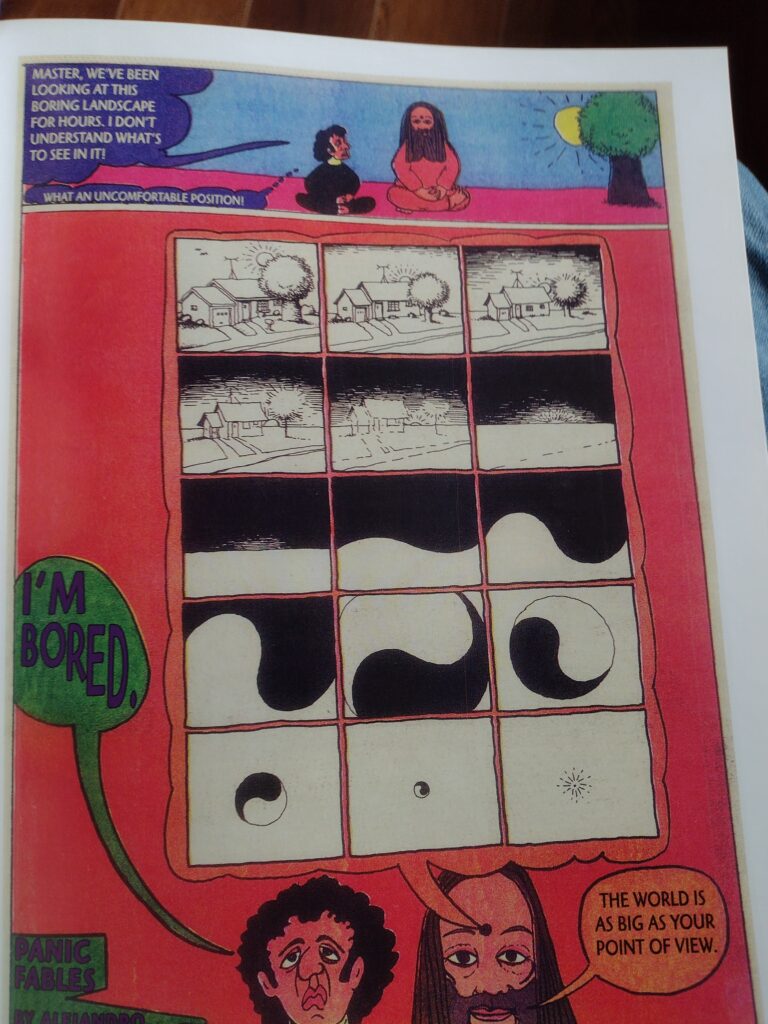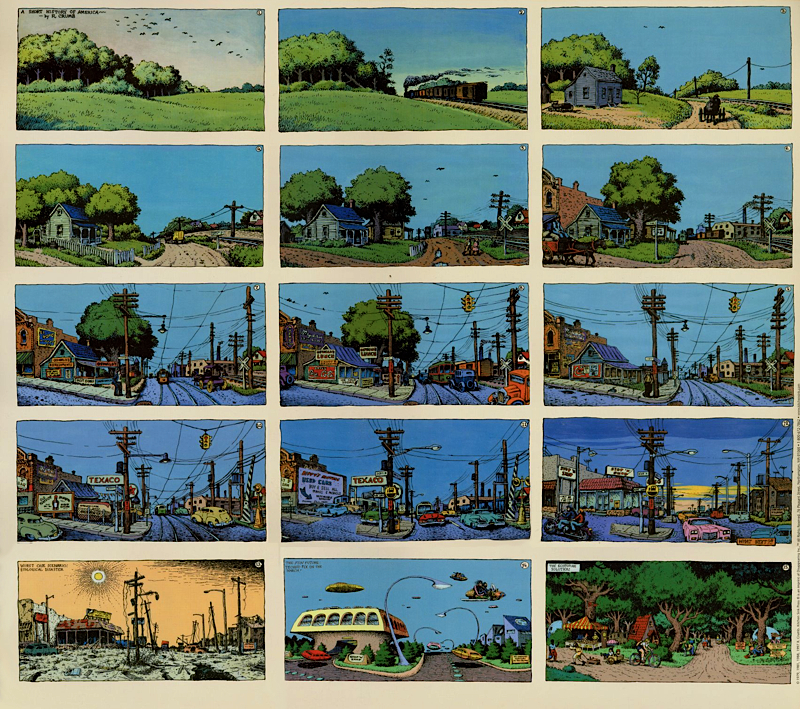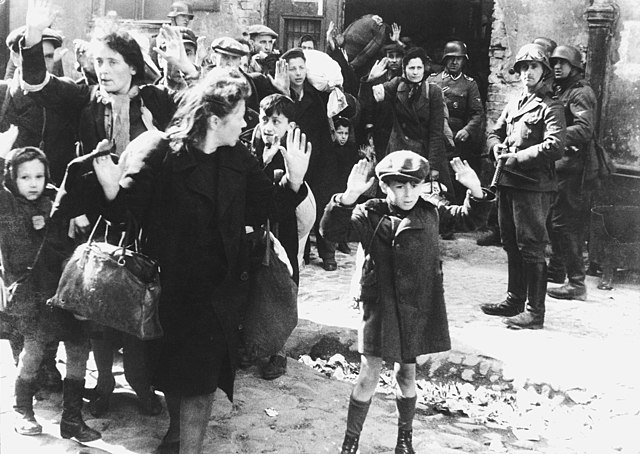I wonder if Robert Crumb saw this before doing his “A Short History of America“. There are some similarities.


This article reminded me of how much I love Corvids, and of this video I made of a couple of them.
Brains and brawn helped crows and ravens take over the world
…a quote from Laurie Anderson’s Norton Lecture No. 1
This echos something Pat Metheny said in an interview I read recently about listening being the most important part of playing music.
Listening is important in life. You need to listen to understand. Sitting an listening is an important zen concept. It is important in art. Listening to your inner thoughts/feelings. Being motivated by music and sounds. New sounds are new experiences.
These are, basically, half formed thoughts while I’m trying to figure out where I’m going with this.

The Jewish Ghetto Uprising 1943
https://en.wikipedia.org/wiki/Warsaw_Ghetto_Uprising
The Warsaw Ghetto Uprising[a] was the 1943 act of Jewish resistance in the Warsaw Ghetto in German-occupied Poland during World War II to oppose Nazi Germany‘s final effort to transport the remaining ghetto population to Majdanek and Treblinka death camps.
After the Grossaktion Warsaw of summer 1942, in which more than a quarter of a million Jews were deported from the ghetto to Treblinka and murdered, the remaining Jews began to build bunkers and smuggle weapons and explosives into the ghetto. The left-wing Jewish Combat Organization (ŻOB) and right-wing Jewish Military Union (ŻZW) formed and began to train. A small resistance effort to another roundup in January 1943 was partially successful and spurred Polish resistance groups to support the Jews in earnest.
The uprising started on 19 April when the ghetto refused to surrender to the police commander SS-Brigadeführer Jürgen Stroop, who ordered the burning of the ghetto, block by block, ending on 16 May. A total of 13,000 Jews were killed, about half of them burnt alive or suffocated. German casualties were probably fewer than 150,[citation needed] with Stroop reporting 110 casualties [16 killed + 1 dead/93 wounded].[4]
It was the largest single revolt by Jews during World War II. The Jews knew that the uprising was doomed and their survival was unlikely. Marek Edelman, the only surviving ŻOB commander, said their inspiration to fight was “not to allow the Germans alone to pick the time and place of our deaths”. According to the United States Holocaust Memorial Museum, the uprising was “one of the most significant occurrences in the history of the Jewish people”.[6]
And, of course, the American Revolution started on this date, with battles in Concord, Lexington, and Menotomy, Massachussets in 1775.
This is the full interview, which i can’t embed. https://www.cbsnews.com/video/laurie-anderson-60-minutes-video-2022-04-03/
Here’s a snippet.
Good to be home and breathing better. Lost quite a bit of water weight while in the hospital. Had a lot of fluid in lungs, which seems to have been the major problem. Breathing good, and feel good. Still have a cough though. Hoping fresh air, rather than the dry hospital air will help that.
Reading:
In Montmartre: Picasso, Matisse and the Birth of Modernist Art by Sue Roe
A lively and deeply researched group biography of the figures who transformed the world of art in bohemian Paris in the first decade of the twentieth century
The Solar Grid by Ganzeer
Spanning several centuries after a great flood plunges much of the modern world under water, illustrator and author Ganzeer presents a dystopian tale that is less fantasy and more a premonition of the future. With bold, provocative graphics, The Solar Grid is a warning against uninhibited capitalist greed, failures to address climate change, obsession with celebrity culture, the suppression of dissent, and the powerful nexus of billionaire corporations and policy makers. All the same, it offers hope and a blueprint for resistance. Composed of ten issues, The Solar Grid is a powerful graphic series that cares to indict the most pressing concerns of our times.
A serialized graphic novel. Got the first 5 issues. I’m hoping the last 5 come faster than these. since he’s been working on them for 6 years or more.